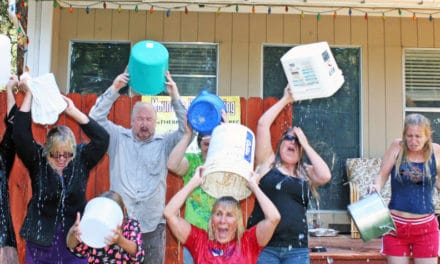[media-credit id=1 align=”alignleft” width=”300″] [/media-credit]
[/media-credit]
Be fire wise about wildfires
By Brian Wilson
State Farm® agent
Wildfires are the most destructive natural disaster on Earth. We’ve all seen the pictures. The wildfires that plague our neighboring states, burning up debris and houses that stand in their path … that lash of orange flame that begins as a spark and ends in a fire out of control. If you live in foothills, grasslands or mountains, you are at risk!
Each year thousands of wildfires burn across millions of acres of land, mostly west of the Mississippi River. In 2004, it cost nearly $890 million to fight these fires, according to the National Interagency Fire Center (NIFC). Fires play a vital role in nature, helping revitalize forests and prairies by clearing out underbrush, dead trees and other debris.
However, more and more people are moving into areas that were once considered remote, where wildfires now pose greater risk to homes and personal safety. In the past decade, NIFC indicates that annually on average more than 2,600 homes were damaged, more than 100,000 fires were reported and approximately 4 million acres burned.
Wildfires are often started by lightning. But more – four out of every five fires – are started by people, according to FEMA. In the past few years, new techniques have been developed to help combat these devastating fires.
Controlled or prescribed fires are used in many places to remove the fuel that feeds a fire. Areas close to homes are given extra attention in an effort to keep the fire away from buildings. There are also things homeowners can do to help protect their property, possessions and family:
- Install fire detection and sprinkler systems inside your home.
- Use fire resistive building materials outside your home.
- Create a “defensive space” of at least 30 feet by removing dry grass, brush, dead leaves and downed trees.
- Maintain an emergency water supply.
- Provide ready access to your home and be sure your street name and house number are identifiable.
- Practice emergency preparedness in case you need to evacuate the area.
Be sure your family has a plan of how to escape a fire. If you are caught in a fire, stay low to the ground where the smoke is not so heavy. Never hide during a fire – always get out of the house. And once out, do not go back inside. Alert emergency personnel if someone is trapped inside.
We can live in forested areas, as long as we understand that there are risks in doing so. If a fire does flare up in your area, remain vigilant to changing conditions and follow instructions from emergency personnel.
For more information on this and other safety related matters, please visitstatefarm.com.












